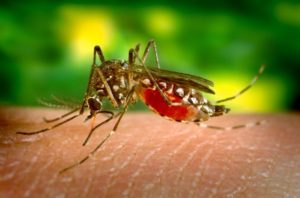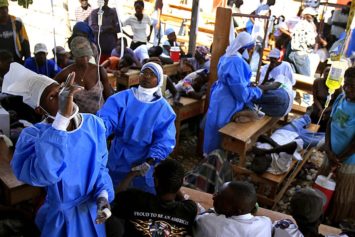
Chikungunya, according to the World Health Organization, is a viral infection that causes fever and joint pain. The word comes from the Kimakonde language, meaning “to become contorted,” and describes the stooped appearance of sufferers with joint pain (arthralgia). The virus is spread by two mosquitoes, aedes aegypti and aedes albopictus — both also transmit dengue fever.
As of June 27, 2014, the Centers for Disease Control and Prevention reports local transmission in 22 countries or territories in the Caribbean, Central America, or South America; and a total of 259,723 suspected and 4,721 laboratory-confirmed chikungunya cases reported from these areas.
Dominican Republic leads with 135,835 suspected cases, and Haiti and Guadalupe come second with 40,00o cases each. Public health officials suspect that the virus is being contracted by visitors to the region from many other countries, including the United States.
Four Boston residents tested positive for the virus on Saturday according to city health officials, and all four had traveled separately to the Caribbean.
Bill Todaro of Pennsylvania’s Allegheny County Health Department told CBS Affiliates: “If people come back from the Caribbean with this virus in them, and they get bitten by mosquitoes at home, those mosquitoes in turn bite other people, and we have an endemic transmission.” The state has already seen three cases so far this year.
There is no vaccine to prevent or medicine to treat chikungunya virus infection. Prevention measures to avoid being bitten by mosquitoes is the best way to prevent the disease. Unfortunately, in countries like Haiti, where many people live in inadequate housing with little to no protection from mosquitoes and there are pools of standing water that breed mosquito larvae, the disease may be tougher to eradicate there.
S.C. Rhyne is a blogger and novelist in New York City. Follow the author on Twitter @ReporterandGirl, http://Facebook.com/TheReporterandTheGirl and visit her website at http://www.TheReporterandTheGirl.com


